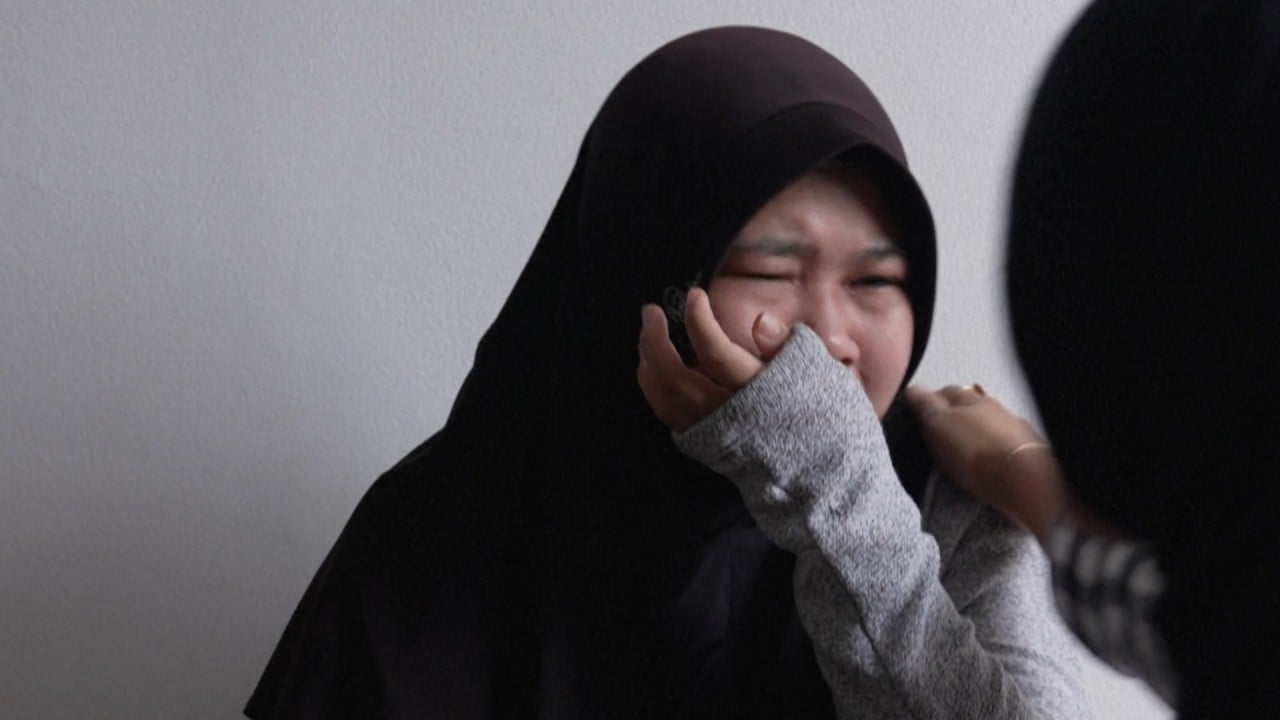
Exclusive | Hong Kong employers of Indonesian domestic helpers do not need to pay ‘thousands of dollars’ more as hiring policy will stay unchanged, country’s envoy to city says
- Employers seeking domestic helpers from Indonesia should use employment agencies accredited by consulate, diplomat advises
- Jakarta manpower body sparked concern, protests saying employers would have to pay ‘thousands more’ Hong Kong dollars
Clemens Triaji Bektikusuma, Indonesia’s consul for protocol and consular affairs, advised employers to use accredited agencies to avoid being overcharged.
There were 262 employment agencies accredited by the consulate, but he knew of more than 1,000 unaccredited ones whose practices posed a risk to both workers and Hong Kong employers, he said.
His remarks cleared up recent confusion over whether employers would have to pay considerably more to hire helpers from Indonesia.
The Jakarta-based Indonesian Manpower Placement Agency Association (Aspataki) announced earlier this month that Jakarta would implement its “zero placement fee” policy fully and employers would have to pay a few thousand more Hong Kong dollars.
The news upset employers and led to a protest outside the Indonesian consulate by dozens of helpers who demanded that Jakarta tackle overcharging by placement agencies that hurt them and their employers.
On August 10, Hong Kong Secretary for Labour and Welfare Chris Sun Yuk-han met Indonesia’s acting consul general Slamet Noegroho and concluded that there was no change in the fees for bringing helpers to the city, but he did not make clear if Aspataki’s claim would take effect for local employers.
In an interview with the Post on Wednesday, Bektikusuma expressed “deep regret” that Aspataki’s announcement had resulted in confusion.
“It is very unfortunate that there were statements by an unauthorised party claiming to represent the whole system and that [this] led to speculative news. It does not only irritate the Hong Kong public but there are also effects for the Indonesian domestic helpers,” he said.
He emphasised that employers did not need to pay extra if they went through accredited agencies which were closely monitored by the consulate to ensure their practices were in line with the regulations.
Among other things, the consulate checked the size of the agencies, the number of staff and accommodation for newly arrived workers.
He said there were unaccredited agencies in Hong Kong that could charge employers more because they operated like “subagencies” and went through the accredited agencies to process the formalities involved in employing helpers.
Some agents told the Post that the costs related to Indonesia’s zero placement fee policy – revised twice by Jakarta in 2020 and last year to protect workers from falling into debt – had already been absorbed in recent years. Under the policy, helpers do not need to pay a job placement fee.
Thomas Chan Tung-fung, chairman of the Hong Kong Union of Employment Agencies, said the fee had been “gradually” passed on to the employers and reflected the “simple logic of how business works”.
He estimated that employers paid between HK$10,000 and HK$12,000 (US$1,274 and US$1,529) to recruit an Indonesian helper before 2020, and that had gone up by HK$3,000 to HK$4,000 over the past three years.
He said the extra cost did not cover a training fee, which was supposed to have been borne by Jakarta.
But Chan said the Indonesian agencies did not receive that money from their government, and Aspataki then claimed there was a new fee employers had to pay, which would eventually pass on to the workers if employers failed to shoulder it.
Chan felt the cause of the confusion lay in the communication between the Indonesian agencies and Jakarta authorities.
Hong Kong Employment Agencies Association chairman Cheung Kit-man said it appeared that the Indonesian authorities and agencies were not aligned on how to implement the zero placement fee policy.
He said that Jakarta had pressured agencies there to enforce the policy without realising the demand and standards expected in Hong Kong.
“Does the market have enough experienced workers to offer? Are the workers well-trained? Are the documents all ready to proceed,” Cheung asked.
Some extra fees were incurred because of extra training given to inexperienced workers, or those from rural areas who did not have the complete identification documents.
In such cases, it did not make sense for Jakarta to expect employers to bear the additional cost and the authorities there left it to the Indonesian agents and workers to deal with, he said.
Cheung, who operates six employment agencies in Hong Kong, said he had complied with the policy and already raised the recruitment fee by about HK$5,000 over the years.
Bektikusuma agreed that the decision to raise in placement fees involved “business-to-business relations” between agencies in Hong Kong and Indonesia.
He said the consulate had drawn up “a strict, comprehensive mechanism” to share all processes involved with the agencies, while maintaining close coordination with Hong Kong’s Labour Department and Immigration Department.
The diplomat added that all Hong Kong accredited agencies were subject to a yearly review by the consulate.
There are currently about 140,000 Indonesian domestic helpers in Hong Kong, accounting for more than two-fifths of the 338,000 such foreign workers in the city, according to official data.
Although Jakarta had been trying to reduce the burden on the workers, Bektikusuma acknowledged that some were still overcharged when making arrangements to work in the city.
But he said there were limits to what the Indonesian authorities could do.
“Overcharging is much more a matter between the Hong Kong and Indonesian employment agencies,” he said.
If overcharging occurred in Indonesia, he was confident the country’s law enforcement agencies would deal with the complaints.
“But the Indonesian consulate will not interfere in cases that happen in Hong Kong,” he said.
Bektikusuma invited local authorities to work with the consulate to review the system to ensure better protection for the workers.
“We need to sit together, to monitor and evaluate whether there are steps that we need to change,” he said.



